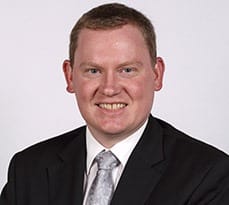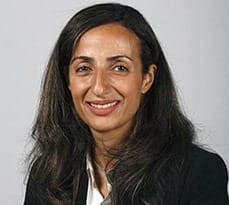Why the Cambridge MFin is a great place to hone your skills.

Networking, like any skill, takes practice. That’s why having a safe place to hone your skills is vital: a place where mistakes are a learning opportunity rather than costing you a job offer.

That place can be physical: a workshop, for example. “It’s a huge advantage to network in a safe space,” says Paul Kelly (MFin 2014) currently senior business consultant at HSBC in the UK. “Ultimately, you are practicing with the trainer and your classmates. If you do something that doesn’t work you can have a good laugh about it. It’s not potentially going to affect a job opportunity, as it might if you’d made that same mistake with a senior executive during a networking evening.”
A good networking workshop will mirror the unpredictability and face-to-face nature of a ‘real’ event. “We get participants to do things rather than just go and view some slides,” says Heather White, CEO of training company Smarter Networking. “We break them out into groups and show them, through observation, how to read a group. Should they enter? Should they leave? How do they target someone within that group, respond to body language, or create conversations?”
A vast amount of psychology goes on behind networking in the broad sense, she points out. “My job is to give participants practical tips and ideas, but what I’m really doing is working on their confidence, their mindset, their attitude and their unconscious bias. All these things come into play.”
On the Cambridge MFin, Kelly remembers, the networking training was held just before an actual networking evening at the Oxbridge Club. “That was a huge advantage: you’ve got the learning and techniques fresh in your mind. I think you get a much bigger benefit doing it there and then than having a session and then applying your learning a month later.”
And that safe environment doesn’t just apply within a workshop: it also depends on the people you are networking with. “For example, one kind of networking can be done with professionals who come into the programme – speakers, alumni or friends of the programme,” says Marwa Hammam, Cambridge MFin Executive Director. “That’s networking within a safe environment. These people are part of the wider MFin family: they’re almost like a live feed from the market, on the ground, doing those jobs.”

For David Rochow (MFin 2016), associate director at Bluestone Capital Management, being able to network with highly senior professionals within the framework of the Cambridge MFin programme was a huge bonus. “I was surprised by the openness of the individuals coming into the course – whether it be through the City Speaker series or lectures or seminars,” he says. “Senior executives were open and obliging, generally willing to sit down for a coffee with students as schedules permitted.
“This was invaluable experience to hone a key skill set. In new and old corners of finance alike, you are working in environments where personal and professional networks play a crucial role and you are continuously developing relationships with prospective business partners or collaborators. You not only have to reach out to someone, quickly build rapport, and nurture a relationship with them but also know when to walk away and when to shift your resources to new opportunities.”
Then there’s what Hammam calls the ‘super-safe’ network: your business school class, which ideally will include people from a wide range of product areas, sectors and geographies. On the Cambridge MFin programme, everyone presents on their work experience, so everyone gets an insight into their new instant network’s skillsets.

“Let’s say I’m interested in going into private equity in Hong Kong, and there is someone in the classroom who works in that space,” says Hammam. “I can speak to that person in a very safe environment to gather market intelligence and ask all the questions I want.”
These networks are brought together on a closed LinkedIn group, allowing another safe space – this time, a virtual one – for Cambridge MFin alumni across 35 countries. “Networking on LinkedIn could be anything from: ‘I’m in your city: can we catch up for a coffee?’ or ‘I’m interested in working in your sector and I’d love to get your thoughts on what it’s like’,” says Hammam.
“There’s an amazing amount of cross-pollination that goes on: internship opportunities which we share with students, for example. Or an alumnus being able to get tips on an interview process with another alumnus who landed a job with the same company.
All this practice reaps great dividends when it comes to networking in the wider world. “In my current role, I’ve been dealing a lot more with senior executives and senior stakeholders at the bank,” says Kelly. “Being able to network informally on a day-to-day basis, getting to know people, has helped build my profile and been immensely powerful. When I’m representing the bank at networking evenings or just going to networking evenings of my own accord, I can walk in with the techniques already embedded in my mind, having practiced and then applied them.”

